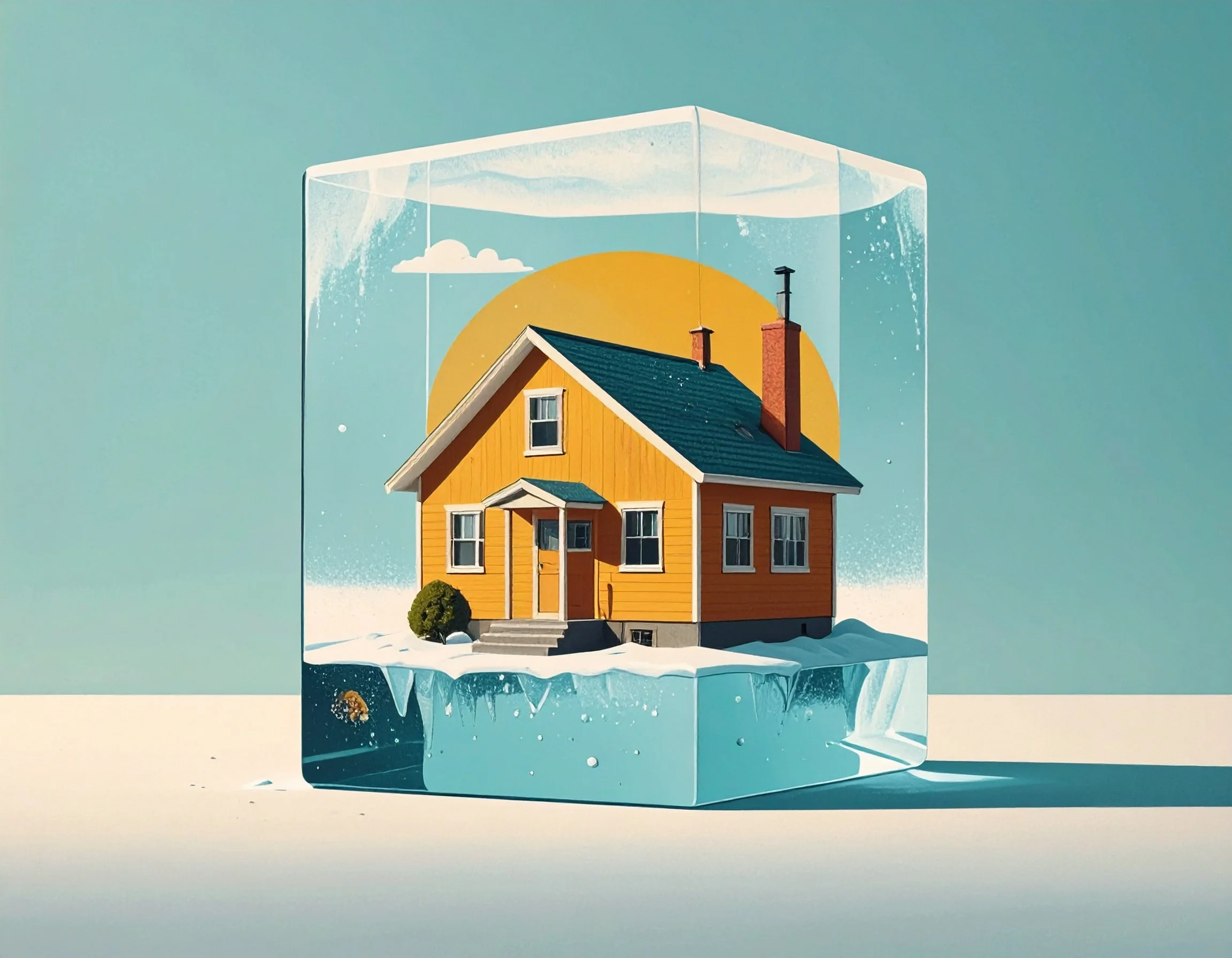The Property Tax Paradox: Why Your House Gained Value While You Slept
Image created with generative Ai.
Let us begin with an observation so obvious it becomes invisible: nothing about your house has changed—and yet it is somehow worth $100,000 more than last year.
The roof still leaks when it rains sideways. The fence still leans like a drunk uncle at a barbecue. And your neighbor still insists on parking his boat (on land!) directly across from your living room window. And yet, according to your friendly neighborhood tax assessor, you now live in Versailles.
This, dear reader, is the curious voodoo of comparables—a system where your tax bill is based not on your home, but on other people’s. Imagine if you were billed for dinner based on what the table next to you ordered. “Sorry sir, I see you had the soup and breadsticks, but someone nearby ordered the lobster tower and a bottle of 2005 Châteauneuf-du-Pape, so that’ll be $300.”
Welcome to the logic of property tax valuation in Texas.
Comparables: The Original Social Media Curse
The idea of using “comps” is one that appeals only to people who do not actually live in homes. It’s the same logic as Zillow, only weaponized by the state. You didn’t upgrade your kitchen? Doesn’t matter. Someone three blocks away did, and now you get to pay for it too. The system mistakes market heat for personal wealth, as though the rising tide that floats all boats also pays your mooring fees.
It’s behavioral madness: taxing people not on what they’ve done, but on what others have done around them. It's taxation by proximity.
The Lock-In Solution: Freezing the Madness
What if we took a cue from behavioral economics—and from, dare I say, common sense—and simply locked in your property tax value the day you buy the home?
This is not revolutionary. It is evolutionary. Your home’s tax valuation is set when you acquire it. It doesn’t budge—doesn’t twitch, flinch, or drift—until you sell it. At which point, a new owner takes on a new valuation, and the cycle continues. Value still rises, yes, but in digestible, psychologically sane chunks. Like stair-steps, not geysers.
This gives the homeowner certainty. Stability. And, crucially, decouples the value of your home from the frantic, casino-like froth of the local housing market.
Governments might grumble at first—fewer windfall gains for municipal coffers—but let’s be honest: the government's job isn’t to speculate on housing like a day trader. It’s to provide roads, schools, and stop signs that don’t spin in the wind.
But What About Equity? Efficiency? Modernity?
Ah yes, the dreaded technocrat's rebuttal. “But this system isn’t efficient!” they say.
To which I say: neither is childhood, marriage, or democracy—and yet we keep them around, because they serve a deeper human function. They recognize that people are not spreadsheets. That predictability beats theoretical fairness. That no one likes being punished for doing absolutely nothing.
Tax systems, like trousers, work better when they don’t ride up.
A Modest Proposal (Without the Cannibalism)
So here it is: freeze the tax valuation at point of sale. Let people budget. Let neighborhoods stabilize. Let the assessors assess new construction, not your 1970s ranch with the asbestos ceiling and commemorative popcorn ceiling texture.
Because the only thing worse than rising taxes is not knowing why they’re rising. And nothing, I mean nothing, undermines faith in public institutions faster than the creeping suspicion that you're being charged for your neighbor’s marble countertops.
